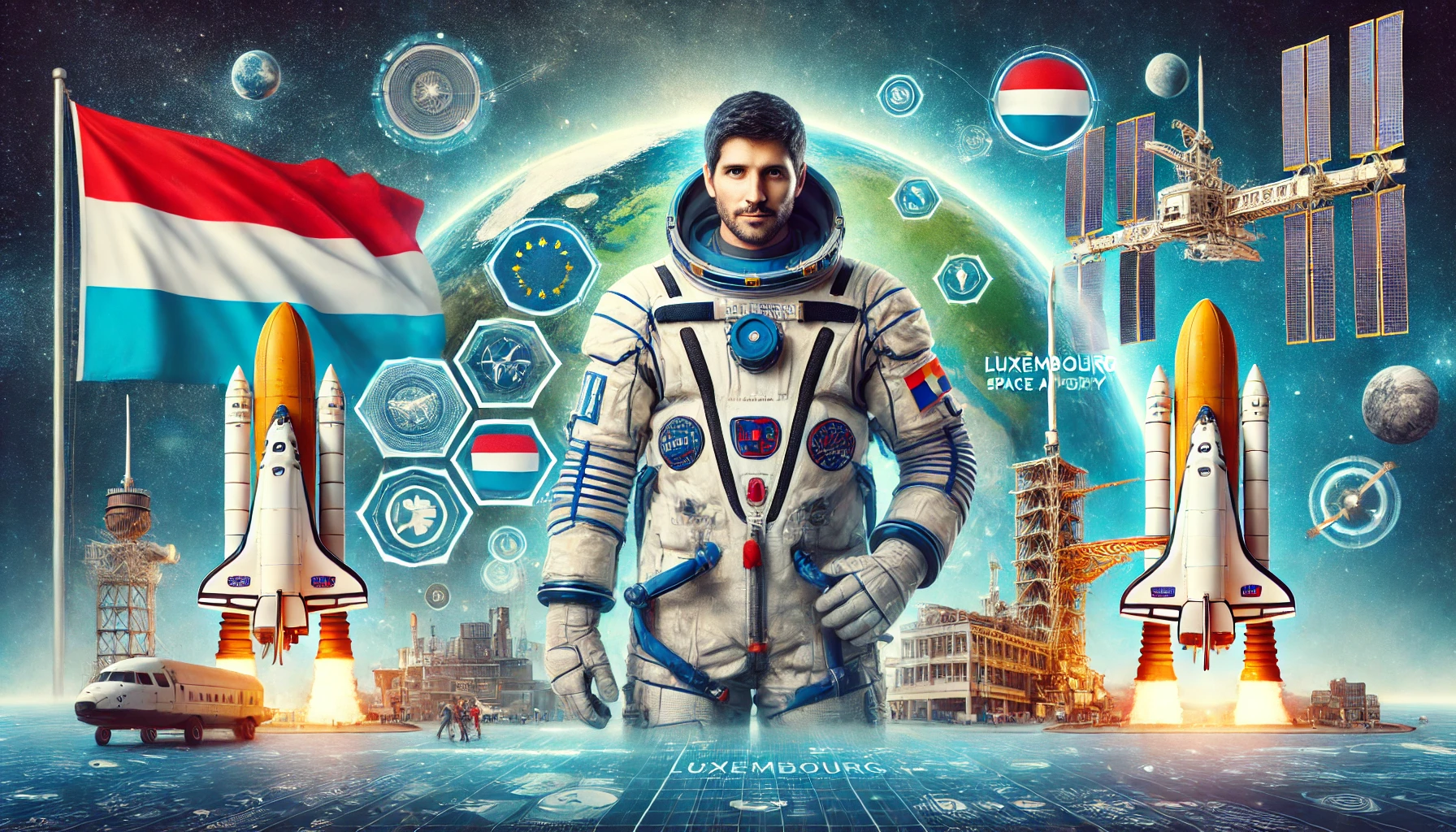Raphaël Liégeois: Luxembourg’s First Astronaut and His Journey to Space
Raphaël Liégeois: In an exciting development for Luxembourg, Raphaël Liégeois has become the first astronaut to represent the nation in space. As a key figure in the European Space Agency (ESA), Liégeois’s journey marks a significant milestone not only for him personally but also for Luxembourg’s growing presence in the field of space exploration.
As we explore the details of Liégeois’s mission and his contributions as a Luxembourg astronaut, we’ll also discuss the broader context of Luxembourg’s involvement in space initiatives, including upcoming missions and training programs. This post aims to highlight the importance of Liégeois’s journey for both Luxembourg and the international space community.
Luxembourg’s Space Ambitions: The Rise of Raphaël Liégeois
The Selection of Raphaël Liégeois as ESA Astronaut
The European Space Agency’s astronaut selection process is highly competitive, with thousands of applicants vying for a chance to join the ranks of those who will venture into space. Among this group, Raphaël Liégeois stood out as a remarkable candidate. Selected as part of a new class of ESA astronauts, he embodies Luxembourg’s growing commitment to space exploration.
Liégeois, a native of Differdange, has always been passionate about science and technology. His educational background in physics and engineering, combined with his dedication to research and innovation, positioned him perfectly for this opportunity. With the title of the first Luxembourg astronaut, he brings pride not only to his hometown but to the entire country.
Luxembourg’s Growing Role in Space Exploration
In recent years, Luxembourg has made significant investments in the space sector, aiming to establish itself as a key player in global space initiatives. The creation of the Luxembourg Space Agency (LSA) underscores the government’s commitment to promoting research and development in this field.
The Luxembourg space mission strategy focuses on fostering partnerships with other space agencies and private companies, ensuring that Luxembourg remains at the forefront of advancements in space technology. Liégeois’s selection as an astronaut is a natural progression in this journey, emphasizing the country’s focus on space as a viable avenue for economic growth and technological development.
Training and Preparation: What It Takes to Become an Astronaut
Luxembourg Astronaut Training
Becoming an astronaut is not an easy feat. Rigorous training is required to prepare candidates for the physical and psychological demands of space travel. Luxembourg astronaut training involves a variety of disciplines, including survival training, physical fitness, and simulations of life in space.
Liégeois and his fellow astronauts undergo extensive training programs to prepare for missions to the International Space Station (ISS) and other future endeavors. The training includes:
- Technical Skills: Learning to operate spacecraft systems, conduct scientific experiments, and manage emergencies.
- Physical Conditioning: Astronauts must maintain peak physical fitness to endure the rigors of space travel, including weightlessness and high-stress situations.
- Teamwork and Leadership: Since astronauts often work in teams, training includes exercises to enhance communication and leadership skills.
Preparing for the 2026 ISS Mission
As Liégeois prepares for his upcoming mission, which is set to take place in 2026 at the ISS, he joins a select group of astronauts trained to live and work in space. The 2026 ISS mission Luxembourg promises to be an incredible opportunity for Liégeois to conduct research that could benefit humanity and strengthen Luxembourg’s position in the global space community.
Through his training, Liégeois will also be an ambassador for Luxembourg, showcasing the nation’s commitment to science and innovation on an international stage. His participation in the mission will undoubtedly inspire future generations of scientists and explorers in Luxembourg.
Luxembourg’s Contribution to Space Exploration: A Broader Context
The Role of the European Space Agency
The European Space Agency plays a vital role in promoting cooperation among its member countries and advancing knowledge about space. Luxembourg’s involvement with the ESA allows the country to contribute to groundbreaking research and exploration initiatives.
By participating in ESA missions, Luxembourg not only enhances its reputation on the global stage but also gains access to valuable resources and expertise that benefit its own space programs. The collaborative efforts of ESA member states pave the way for innovations in technology and research.
Luxembourg’s Investment in Space Technologies
Luxembourg has made significant investments in satellite technology, space mining, and research initiatives. The LSA has partnered with private companies to explore opportunities in the space sector, leading to the establishment of a thriving space economy. The focus on space resources has positioned Luxembourg as a leader in space mining and utilization.
By actively participating in space exploration, Luxembourg demonstrates its commitment to expanding human knowledge and capability in outer space. The upcoming missions involving Raphaël Liégeois will further solidify the country’s reputation as a hub for space innovation.
A New Era for Luxembourg in Space Exploration
As Raphaël Liégeois prepares to embark on his mission as Luxembourg’s first astronaut, he symbolizes the nation’s ambitious goals and aspirations in the realm of space exploration. His selection by the ESA and the extensive Luxembourg astronaut training he undergoes mark a significant turning point for Luxembourg’s role in the global space community.
With a commitment to innovation and collaboration, Luxembourg is poised to make meaningful contributions to space research and exploration. Liégeois’s journey will inspire countless individuals in Luxembourg and beyond, emphasizing the importance of education, exploration, and the pursuit of knowledge.
For more insights into space exploration and Luxembourg’s growing role in it, visit Regent Studies.




